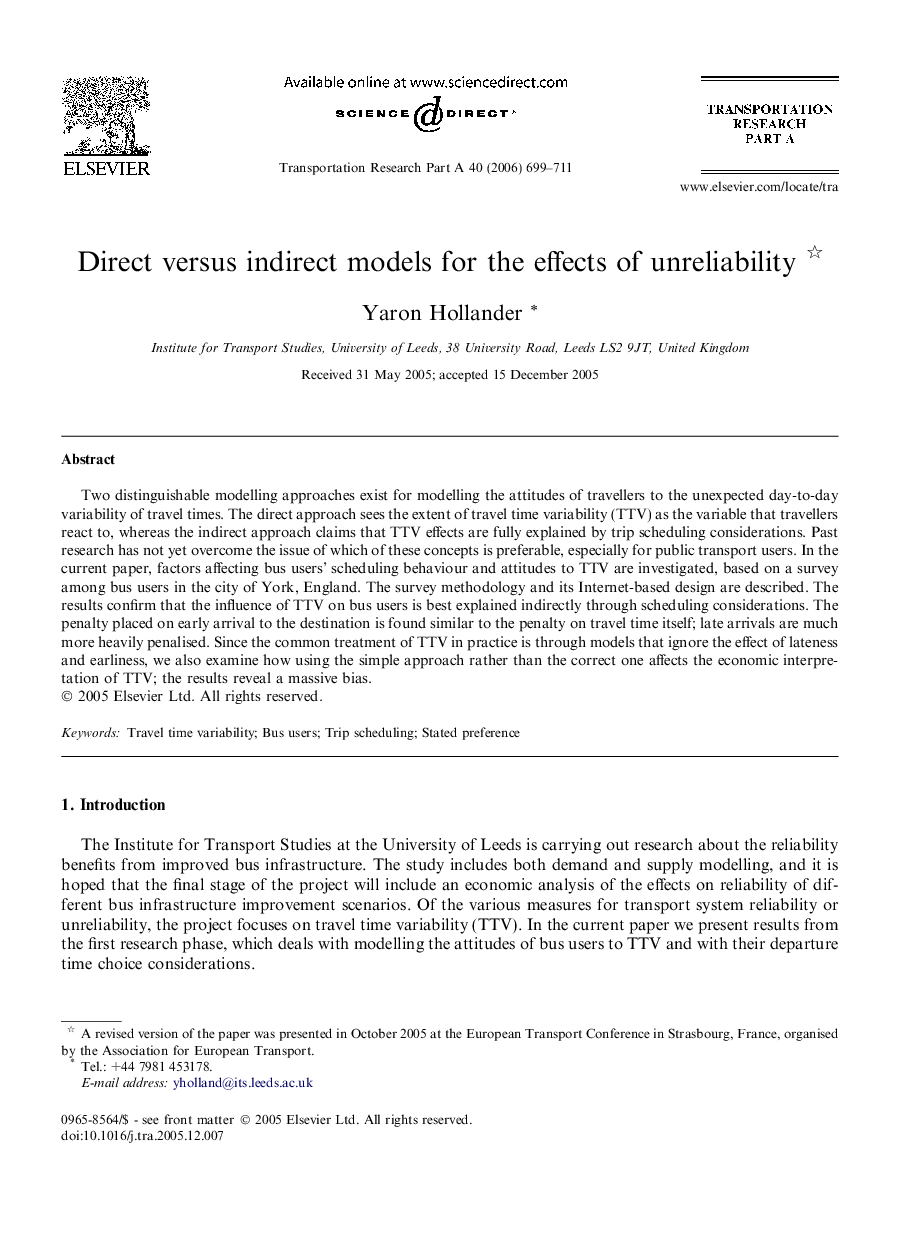| کد مقاله | کد نشریه | سال انتشار | مقاله انگلیسی | نسخه تمام متن |
|---|---|---|---|---|
| 312703 | 534244 | 2006 | 13 صفحه PDF | دانلود رایگان |

Two distinguishable modelling approaches exist for modelling the attitudes of travellers to the unexpected day-to-day variability of travel times. The direct approach sees the extent of travel time variability (TTV) as the variable that travellers react to, whereas the indirect approach claims that TTV effects are fully explained by trip scheduling considerations. Past research has not yet overcome the issue of which of these concepts is preferable, especially for public transport users. In the current paper, factors affecting bus users’ scheduling behaviour and attitudes to TTV are investigated, based on a survey among bus users in the city of York, England. The survey methodology and its Internet-based design are described. The results confirm that the influence of TTV on bus users is best explained indirectly through scheduling considerations. The penalty placed on early arrival to the destination is found similar to the penalty on travel time itself; late arrivals are much more heavily penalised. Since the common treatment of TTV in practice is through models that ignore the effect of lateness and earliness, we also examine how using the simple approach rather than the correct one affects the economic interpretation of TTV; the results reveal a massive bias.
Journal: Transportation Research Part A: Policy and Practice - Volume 40, Issue 9, November 2006, Pages 699–711